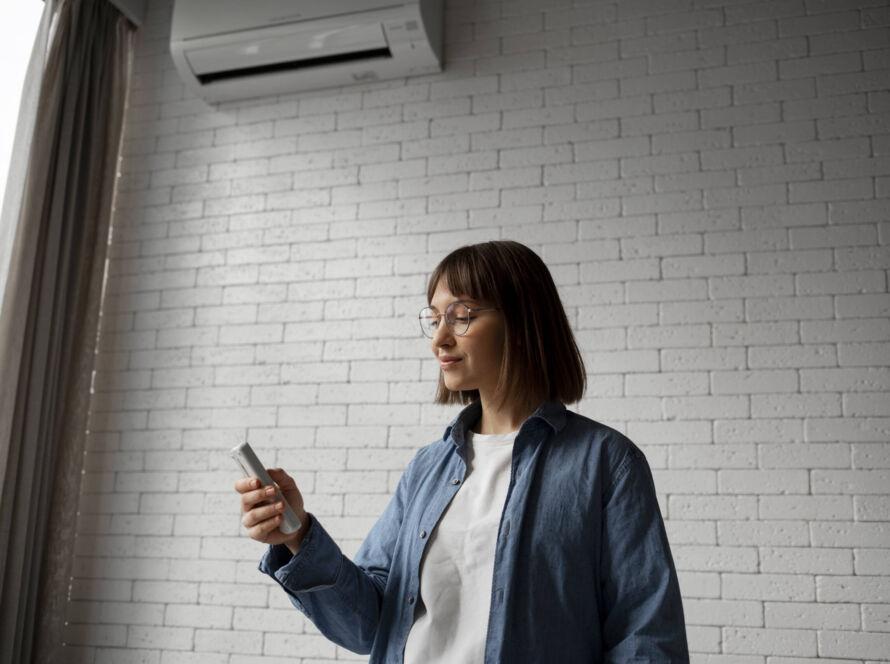The National Weather Service predicts that this year’s hurricane season will be active. That means it’s time to start preparing your home for the possibility of a storm. One of the most important things you can do is ensure your HVAC unit is ready for anything. This blog post will give you some tips on preparing your HVAC unit for hurricanes and other stormy weather.


Inspect Your HVAC Unit
Scheduling regular inspections of your HVAC unit is key to preventing misery during and after big storms. After all, the last thing you want is your HVAC unit to fail in the summer heat! A certified technician can diagnose and fix problems before a storm can worsen them. They can also recommend how to protect your unit from storms based on your unit and location. If you live in a flat or low-lying area, ensure your unit rests on a concrete condenser pad to avoid potential water damage from flooding.
Install a Surge Protector
Many devices and appliances in your home have sensitive electronics vulnerable to power surges that commonly occur during storms. Your HVAC unit is one of these devices. Surge protectors use metal-oxide varistors to stop voltage spikes before damaging your HVAC unit’s controls or wiring. A surge protector dramatically reduces the chances of a power surge damaging your HVAC unit. Taking this precaution ensures that your HVAC unit will be operating effectively after the storm passes, even if there are sudden changes in voltage.
Have a Portable Generator Ready
Brownouts and power outages are a fact of life regarding extreme weather, particularly hurricanes. While there’s nothing you can do to prevent power outages, you can keep them from inconveniencing you by investing in a backup generator. A portable generator will supply electricity to your home and your HVAC unit, independently of the power grid. This backup can make all the difference if you lose power for an extended period, as often happens during hurricanes. Remember not to run your generator in an enclosed space like your garage, as this causes dangerous carbon monoxide buildup.


Strap Down Your Unit
Even a heavy AC unit is vulnerable to high winds associated with intense storms. A flying HVAC unit can cause severe damage to anything it hits, not to mention damage to the unit itself. Remove anything around the unit that the storm could turn into a projectile with high winds, including lawn furniture, outdoor equipment, and loose tree limbs. Strap your unit with condenser or hurricane straps to ensure it is secure. You will also want to shield the coils of your HVAC unit to prevent debris from damaging it. You may be tempted to cover your unit with a tarp or similar blanket, but resist this urge! Doing this impedes your unit’s ventilation, retaining moisture to cause rust, mold, and mildew inside your AC.
Turn Off Your System During the Storm
A surge protector helps harden your unit against lightning strikes, but this is not 100% guaranteed to work. Even with a surge protector, a spike in voltage can cause severe damage to your HVAC system or even start a fire. Turning your system off helps mitigate this possibility since it will not be drawing power. Once the storm has passed, perform a visual inspection of your unit for damage before turning it back on. Call a certified HVAC company for a diagnosis if you see damage or find that your unit is not working correctly.
Conclusion
Before any big storm, you make sure to prepare your home, and that should include your AC unit. Invest in your AC unit with a surge protector, backup generator, and hurricane straps, and make sure to turn your HVAC system off before the storm hits. Remember to inspect your HVAC system before and after the storm so you can catch any issues and be aware of any damage the unit may have suffered. By taking all of these measures to protect your home and HVAC system, you can ensure that you are prepared for whatever nature throws your way. The absolute best way to ensure this is by scheduling an inspection with the professionals at Expert Air!






